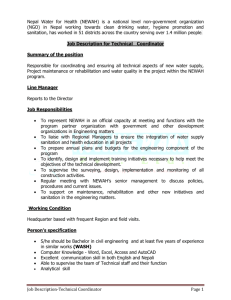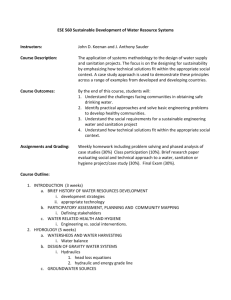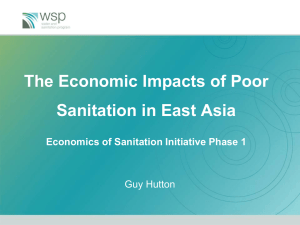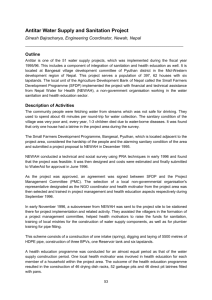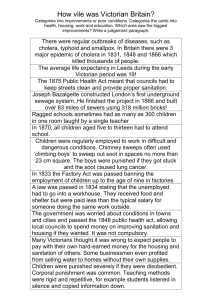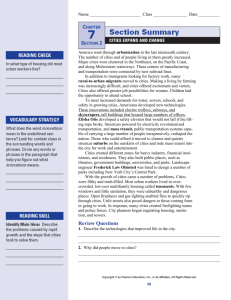Draft Final Round: Coordinated Policy Asks on the Human Right to
advertisement
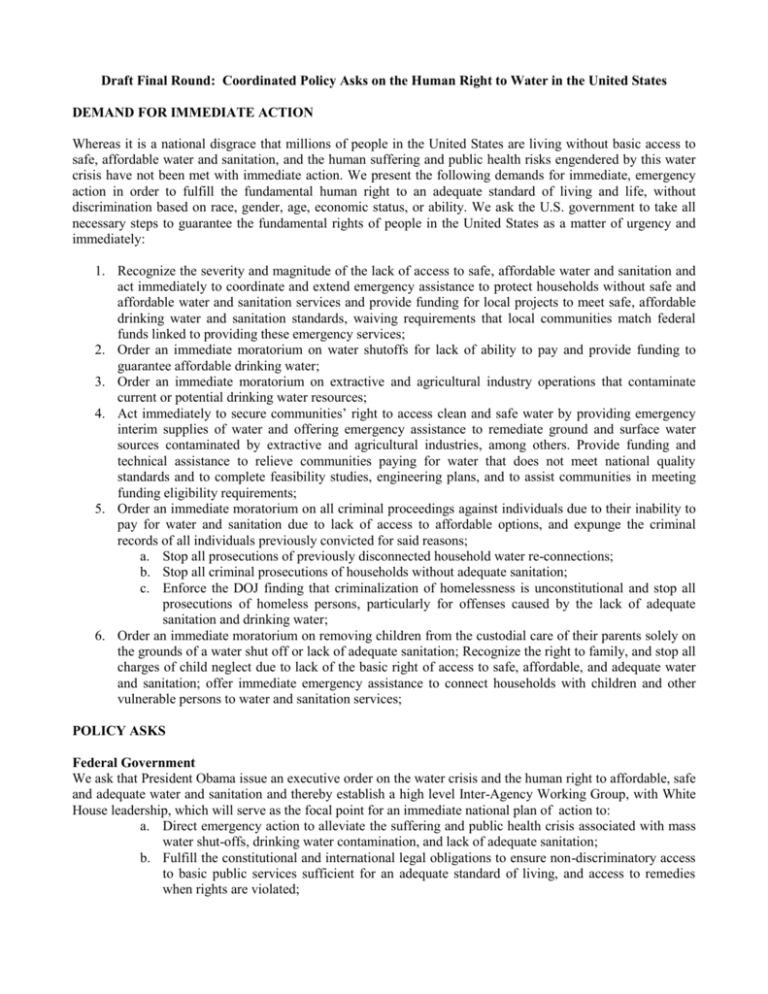
Draft Final Round: Coordinated Policy Asks on the Human Right to Water in the United States DEMAND FOR IMMEDIATE ACTION Whereas it is a national disgrace that millions of people in the United States are living without basic access to safe, affordable water and sanitation, and the human suffering and public health risks engendered by this water crisis have not been met with immediate action. We present the following demands for immediate, emergency action in order to fulfill the fundamental human right to an adequate standard of living and life, without discrimination based on race, gender, age, economic status, or ability. We ask the U.S. government to take all necessary steps to guarantee the fundamental rights of people in the United States as a matter of urgency and immediately: 1. Recognize the severity and magnitude of the lack of access to safe, affordable water and sanitation and act immediately to coordinate and extend emergency assistance to protect households without safe and affordable water and sanitation services and provide funding for local projects to meet safe, affordable drinking water and sanitation standards, waiving requirements that local communities match federal funds linked to providing these emergency services; 2. Order an immediate moratorium on water shutoffs for lack of ability to pay and provide funding to guarantee affordable drinking water; 3. Order an immediate moratorium on extractive and agricultural industry operations that contaminate current or potential drinking water resources; 4. Act immediately to secure communities’ right to access clean and safe water by providing emergency interim supplies of water and offering emergency assistance to remediate ground and surface water sources contaminated by extractive and agricultural industries, among others. Provide funding and technical assistance to relieve communities paying for water that does not meet national quality standards and to complete feasibility studies, engineering plans, and to assist communities in meeting funding eligibility requirements; 5. Order an immediate moratorium on all criminal proceedings against individuals due to their inability to pay for water and sanitation due to lack of access to affordable options, and expunge the criminal records of all individuals previously convicted for said reasons; a. Stop all prosecutions of previously disconnected household water re-connections; b. Stop all criminal prosecutions of households without adequate sanitation; c. Enforce the DOJ finding that criminalization of homelessness is unconstitutional and stop all prosecutions of homeless persons, particularly for offenses caused by the lack of adequate sanitation and drinking water; 6. Order an immediate moratorium on removing children from the custodial care of their parents solely on the grounds of a water shut off or lack of adequate sanitation; Recognize the right to family, and stop all charges of child neglect due to lack of the basic right of access to safe, affordable, and adequate water and sanitation; offer immediate emergency assistance to connect households with children and other vulnerable persons to water and sanitation services; POLICY ASKS Federal Government We ask that President Obama issue an executive order on the water crisis and the human right to affordable, safe and adequate water and sanitation and thereby establish a high level Inter-Agency Working Group, with White House leadership, which will serve as the focal point for an immediate national plan of action to: a. Direct emergency action to alleviate the suffering and public health crisis associated with mass water shut-offs, drinking water contamination, and lack of adequate sanitation; b. Fulfill the constitutional and international legal obligations to ensure non-discriminatory access to basic public services sufficient for an adequate standard of living, and access to remedies when rights are violated; c. d. e. f. g. i. Including by fulfilling the 2011 recommendation of the UN Special Rapporteur on the Human Right to Safe Drinking Water and Adequate Sanitation that the United States “devote priority attention to improving aging infrastructure, as well as innovative designs and approaches that promote human rights, are affordable and create more value in terms of public health improvements, community development and sustainability.” Ensure that low-income individuals do not bear the costs for such infrastructure improvements. Direct the Civil Rights Division of the U.S. Department of Justice to conduct an investigation into the discriminatory impact of current water and sanitation services and the violations of the human rights to life, adequate water and sanitation, an adequate standard of living, nondiscrimination, and equal protection. Designate the appropriate federal agency to mandate reporting, collecting, analyzing, and publishing information about violations of these human rights, including information that would facilitate the identification of disparate impacts on the basis of race and socioeconomic status, and elaborate a plan of action to address gaps in regulation, policy, public funding, and oversight that have contributed to the crisis; Direct the relevant agencies to take all necessary steps to alleviate the water and sanitation crisis and increase funding and staffing as needed to make such action prompt and effective; Fulfill the commitments made by the United States government during the United Nations Universal Periodic Review to ensure the human right to affordable and safe water and adequate sanitation, as a matter of urgency. Stop engagement in behavior at the international level to weaken or diminish the international recognition of the rights to water and sanitation. Members of Congress Request that Congress hold an investigatory hearing and direct the Congressional Research Service to produce a report about violations of civil rights, discriminatory impacts, and violations of the right to life and an adequate standard of living, and the human rights to water and sanitation in the United States, including data on the number of people living without safe tap water and sanitation (including where water fails to meet national quality standards), and information on age, disabilities, chronic illness, race or income level of the affected population, and recommend mitigation measures. Fulfill the commitments made by the United States government during the Universal Periodic Review to expedite/urgently move towards the ratification of the Convention on the Rights of Persons with Disabilities and the Convention on the Elimination of All Forms of Discrimination Against Women, and the Convention on the Rights of the Child, As well as fulfill the UPR commitment to consider early ratification of the International Covenant on Economic, Social, and Cultural Rights (which the U.S. signed in 1977).
